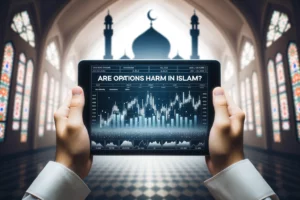Are Savings Accounts Haram in Islam?
In the realm of Islamic finance, the question of whether savings accounts are haram often emerges, creating a whirlwind of confusion. Let’s embark on a journey to dissect the complexities, debunk myths, and understand the Islamic perspective on savings accounts.
Understanding the Basics
Savings accounts, a common financial instrument globally, allow individuals to deposit money in a bank, earning interest over time. However, in Islamic finance, the concept of riba (usury or interest) is strictly prohibited by Sharia law. This prohibition stems from the ethical concern of exploiting others’ financial difficulties.
The Ethical Quandary
Islamic finance emphasizes fairness and ethical conduct. Traditional savings accounts, which offer interest as a form of profit, conflict with these principles. By gaining profit from mere deposits, one might argue that it mirrors the concept of riba, which is unequivocally haram in Islam.
Islamic Alternatives: Profit and Loss Sharing
In response to these concerns, Islamic finance offers alternatives like Mudarabah and Wakalah, which are profit and loss-sharing arrangements. In Mudarabah, the bank acts as a fund manager, investing the deposited money in Sharia-compliant ventures, sharing profits with the account holder. Wakalah involves the bank acting as an agent, investing the funds on behalf of the account holder, and sharing the profits.
Modern Islamic Banking
The rise of Islamic banking institutions has led to the development of Sharia-compliant savings accounts. These accounts avoid the concept of interest, offering profits based on investments adhering to Islamic principles. This approach aligns with the core values of fairness and ethical finance.
Individual Interpretation and Scholarly Opinions
It’s crucial to note that interpretations of Islamic finance can vary among scholars and individuals. While some argue that modern savings accounts align with Islamic ethics, others remain cautious, opting for more conservative, Sharia-compliant alternatives.
Conclusion: An Individual Choice
In the ever-evolving landscape of finance, determining whether savings accounts are haram in Islam is a matter of personal interpretation. As the Islamic finance sector expands, individuals can make informed choices, opting for Sharia-compliant alternatives that align with their ethical beliefs.
Frequently Asked Questions
Can I have a savings account in Islam?
Which saving account is halal?
What is the Islamic rule on savings accounts?
Is it Haram to save money?


